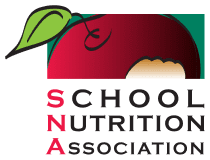Archive
Advocacy & Policy

SNA Announces 2023 Election Slate
The SNA Leadership Development Committee held the 2022 selection meeting last week to review candidates for positions on the SNA…

Warm Up to Chilis, Soups and Stews
‘Tis the season for hearty entrées that deliver classic comfort. Get your ladles ready! It’s the time of year when…

The Café Caters
A deep dive into one school nutrition department’s decision to launch a district-wide catering program. Why and how you might…

Best. Birthday. Ever.
Discover three inventive approaches to surprising and delighting students on their special day. When school districts first began crafting and…

Beyond the Party Platter
It might be a matter of philosophy, with one district simply not wanting to manage a for-profit business alongside a…

SNA, USDA Urge Participation in Upcoming Surveys
SNA and USDA will conduct separate, yet equally important surveys this month to collect critical information on challenges facing school…

Congratulations to the 2023 FAME Awards Winners
The results are in: Basic American Foods (BAF) has announced the winners of the 2023 Foodservice Achievement Management Excellence (FAME)…

SN Plus: Discover Why the Time Is Right to Pursue the SNS
The School Nutrition Specialist (SNS) credential is a mark of excellence and achievement that reflects what it takes to manage…

#SNIC23 Pre-Con Spotlight: Local Dairy Farm Tour
Make plans to arrive a day early for the 2023 School Nutrition Industry Conference and join us for the Pre-Conference…

SN Plus: Assert Your Authority
What’s the value of earning your School Nutrition Specialist (SNS) credential? This SN Plus looks at the preparation needed to successfully pass…
